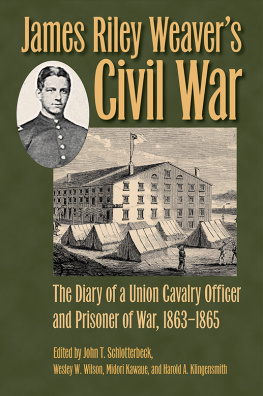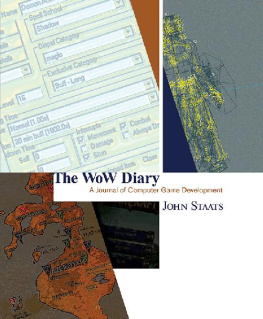LEAVES FROM THE DIARY
OF
AN OFFICER OF THE GUARDS.
This edition is published by PICKLE PARTNERS PUBLISHING
Text originally published in 1854 under the same title.
Pickle Partners Publishing 2011, all rights reserved. No part of this publication may be reproduced, stored in a retrieval system or transmitted by any means, electrical, mechanical or otherwise without the written permission of the copyright holder.
Publishers Note
Although in most cases we have retained the Authors original spelling and grammar to authentically reproduce the work of the Author and the original intent of such material, some additional notes and clarifications have been added for the modern readers benefit.
TO
MAJOR-GENERAL HENRY BENTINCK,
THE OFFICERS, NON-COMHIISSIONED OFFICERS, AND SOLDIERS
Of
The Brigade of Guards ,
SERVING WITH
LORD RAGLANS ARMY IN THE CRIMEA,
THESE REMINISCENCES. OF PAST SERVICES WITH THE BRIGADE
ARE INSCRIBED
WITH FERVENT ATTACHMENT TO THEIR COLOURS
BY
A VETERAN COMRADE.
PREFACE.
THESE papers, taken from the Diary of an Officer of the Guards, having appeared in a periodical and met with approbation, are now, for the first time, offered to the Public in a collective form. They are trifles, but truthful ones. In dedicating them to the Brigade to which the Author once belonged, he cannot but remember how few re main of those who stood in its ranks when he left them:
Haec data poena diu viventibus.
Yet, as some of his proudest and most joyous days were passed in their ranks, he is tempted to address his recollections of former days to the present maintainers of their Sovereigns power and their Countrys glory.
NULLI SECUNDUS
is the well-known motto of one of their regiments. That all of them would maintain it intact, and add fresh laurels to those won by their gallant forefathers, was undoubted. Their recent splen did achievement on the heights of the Alma is the proof.
London, October 10, 1854.
CHAPTER I.
DEPARTURE FROM ENGLAND.-TRANSPORTS.-VOYAGE TO LISBON. - CONVOYS. - THE TAGUS.- MASSENA. -FIGUEIRAS.-MARCH TO COIMBRA.
IN May, 1809, I was gazetted as an Ensign in the Regiment, and in July of the following year was ordered to join a detachment of the Guards destined for our first battalion then serving with Lord Wellingtons army in Portugal. Every hour of my home duties was looked upon as tedious until the longed-for moment for joining my regi ment on active service should arrive. Having obtained a short leave of absence, to bid my friends adieu, I joined a draft or detachment of two hundred men and eight officers, under command of Lieutenant Colonel S--- , at Kingston-on-Thames, and the next day we proceeded on our march to Portsmouth.
On the 29th, to the tune of a militia band, ac companied by the cheers of the towns-people, we marched down to the sallyport, and embarked in smacks, to be conveyed to Spithead, where our ship lay. This was a vessel of 300 tons burden, called the Lord Eldonan old creaky craft, by origin a collier, by transmutation a transport, remarkable for the narrowness of its capacity and the slowness of its motions. Although considered to be sound, experience betrayed its frequent leaky propensi ties. Many now living remember the employment of such an old vessel by the State. Human genius has since applied a power to drive ships against adverse winds and mountainous seas, to roll car riages at the rate of fifty miles an hour over the surface of the earth, and, annihilating time and space, to chain by its electric spark the lightning of heaven, to waft mans wishes from Indus to the Pole.
The conveyance of troops on board transports in those days was anything but luxurious, rapid, or even safe. After a months tugging at our anchor, and bobbing up and down at Spithead, where contrary winds and foul weather detained us, at last on the 31st August, 1810, we weighed anchor, by signal from our Commodore Captain Mackenzie Fraser, of the Undaunted frigate, and dropped down off Yarmouth in the Isle of Wight. On the following day (1st September), under convoy of the frigate and five brigs of war, 130 sail of transports and merchantmen passed through the Needles and lay down Channel with a leading wind. Foul wea ther and adverse winds soon again beset us, and we took six days beating to windward before we reached the chops of the Channel and came off Falmouth.
Although we had all started in the highest spirits, our imaginations were sobered by bad weather and boisterous seas; realities are very unsentimental, and sea-sickness is a sad undignified disorder. The weather however now became calm, and the wind light though fair; we began to get our sea legs and recover our appetites. A boat was lowered and sent on shore for fresh provisions; on its return towards evening, the breeze freshening, we made sail again, and took leave of our country, as the setting sun lingered over and lighted up the fast fading shores, bays, and hills of our dear native land, and then we stretched away toward the blue waters of the Bay of Biscay. A fresh and favour able breeze throughout the night enabled us to run down nearly a hundred miles, when morning showed us the French coast off Cape Ushant. The wind still freshened, and we continued our course di rectly across the Bay.
For a couple of days it blew very hard, and the `Lord Eldon (as usual) sprang a leak. Our men pumped cheerfully and manfully night and day, our officers sharing with the men spell and spell about. The leak relieved us from the smell of bilge-water; a dead calm succeeded, and we lay like a log rolling to and fro in a tremendous swell; as the old song has it
There she lay
All the day
In the
Bay Of Biscay oh.
The sea was like glass; every board of our old brig creaked like the shoes of its namesake, and the canvas flapped round the masts in helpless idle ness, whilst we were exposed to a burning sun on deck and to stifling heat below. Our impatience to advance seemed to increase in proportion to our inability to move. Next the measles broke out among our men, and did not spare the officers; two hundred privates and ten of us were crammed into a space not sufficient to contain half the num ber. Our Captain, who much more frequently had a glass at his mouth than one at his eye, had never extended his maritime knowledge beyond a voy age with coals from Shields to London and back again, and was perfectly innocent of ever taking an observation. He was a red-faced, gooseberry- eyed, drunken Northumbrian skipper; and his ves sel, the ci-devant collier, an ugly, slow, and leaky drowning machine, always going to leeward like a haystack.
From the various accounts that reached us pre vious to our sailing, our people were expected to be in movement before we joined them, and we feared the delay would, as it did eventually, prevent us from sharing in a general action with the enemy. At length a favourable wind sprang up, and the first symptom we had of nearing the land of our future operations was coming in sight of the Berlengas rocks. The practice of sailing under convoy in time of war, with so near a neighbour as France for an enemy, was lying to every evening, for the heavy sailing vessels of the fleet to come up and the convoy to be well together during the night, for fear of the enemys cruisers cutting off any straggling vessels. This was annoying to the headmost ships, that were leading with a favourable gale, and here again we lost way. I know not whether in this circumstance originated my disgust for travelling in slow company, but ever since I certainly have strenuously avoided slow coaches.













